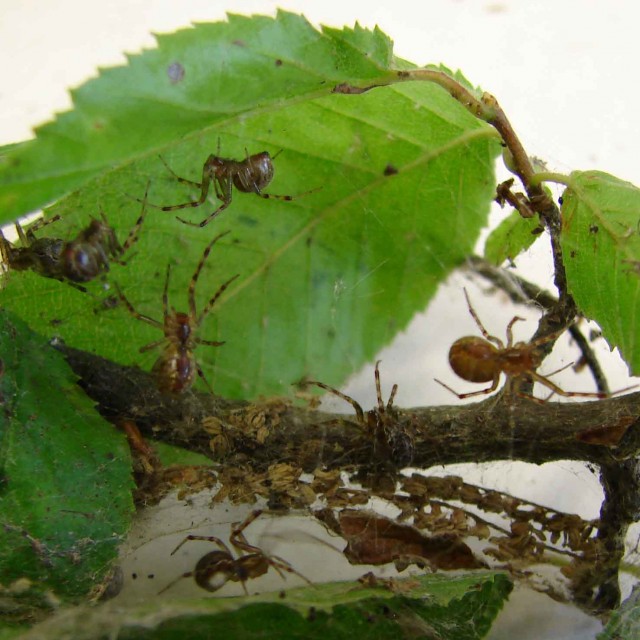Social spiders let their personalities choose their jobs
Ars Technica » Scientific Method 2014-06-17
The impressive abilities of ant colonies come in part because of a division of labor. Large soldiers protect more vulnerable workers, while an even larger queen ensures that there's a large population of replacements. In these cases, the specialization of labor is inseparable from a physical specialization. But it doesn't have to be that way. In leaf-cutter ants, as the cutting parts wear down with age, workers shift to carrying material cut by others. In many other species, there's no obvious difference between animals that do different jobs.
Now, researchers have described an example where task specialization is the product of a behavioral trait rather than a physical one. And it comes in a group we don't normally associate with social behavior: spiders. In a species of spiders that builds a shared nest and collectively rears its young, an aggressive personality dictates the jobs that the spiders normally take on.
Since the term "personality" is normally associated with complex human behaviors, it's worth stepping back and seeing how the authors define animal personality: "consistent variation in individual behavior across contexts." In other words, the spider must respond in similar ways throughout its life rather than switching between aggression and more passive behavior. And it has to show that aggression consistently; it can't rush to attack prey while backing off from intruders.
Read 8 remaining paragraphs | Comments
